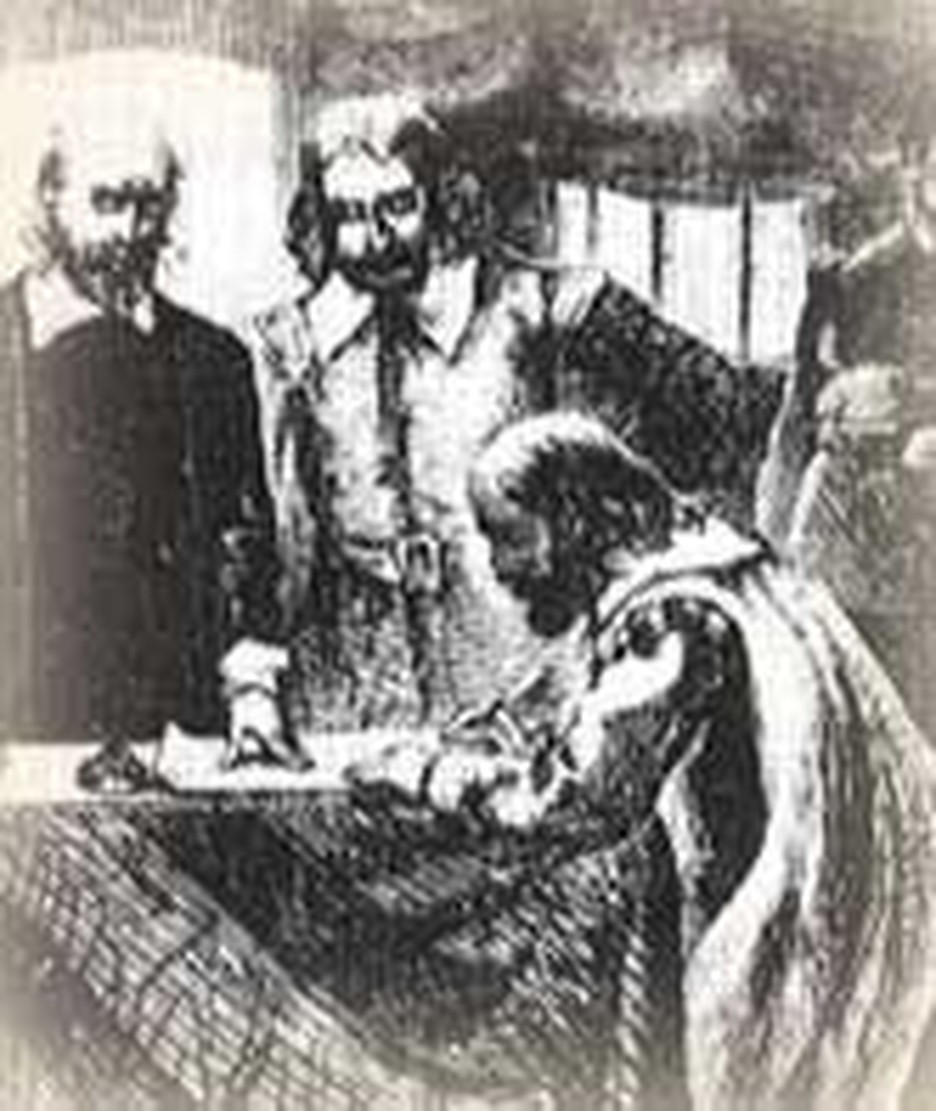
There are more than l60 independent nations in the world. Whether dictatorships or democracies, nearly all have written constitutions, but that of the United States is by far the oldest. This is something we can too easily take for granted, but it really marked a pivotal turning point in history and the way nations came to govern themselves.
How do you suppose the founding fathers ever thought of having a written Constitution? The idea of a written contract between the people and their government came from a tiny band of 50 Christians called Pilgrims that sailed to America in the Mayflower in l620. The Pilgrims believed many of the Church of England's traditions were not Biblical. Since both King James and the state church persecuted many critics as criminals, the Pilgrims became Separatists and fled first to Holland, then to America. They planned to land in Virginia, where they had a charter from the King to govern them, but Atlantic storms carried them far north to Cape Cod. Since their charter was not valid in that region, they needed a new government.
And so on this day, November 21, l620, the Pilgrims drew up and signed the Mayflower Compact (which is actually dated the 11th of November because Britain was still using the Julian calendar) . It said: "For the glorie of God and advancement of ye Christian faith, we do... ...covenant and combine ourselves together into a civil body politick...to enact,... and frame... just and equal laws...for the general good of the Colonie, unto which we promise all due submission and obedience."
Several of the men aboard did not sign. Did they believe the document was illegal?
The compact was modeled after the church covenant that the Pilgrims had drafted and signed in l607 when they had first separated from the English Church and fled to Holland. For the next fifty years, the Mayflower compact served the Pilgrims well, and it became an important precedent for the idea of a written American Constitution at the Convention of l787.
Bibliography:
- Adapted from an earlier Christian History Institute story.
- Curtis, A. Kenneth, J. Stephen Lang, and Randy Petersen. Dates with Destiny; the 100 most important dates in Church History. Tarrytown, New York: Fleming H. Revell, 1984.
- The Mayflower Compact. http://members.aol.com/calebj/compact.html
- Willison, George F. Saints and Strangers; the story of the Mayflower and the Plymouth colony. New York: Ballantine, 1965.
Last updated July, 2007.








